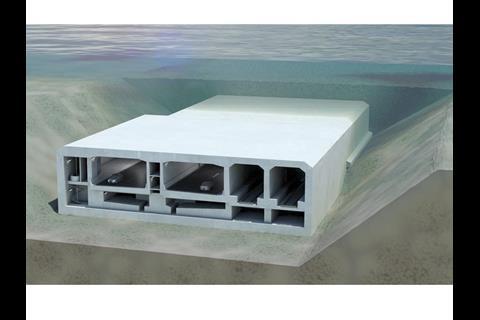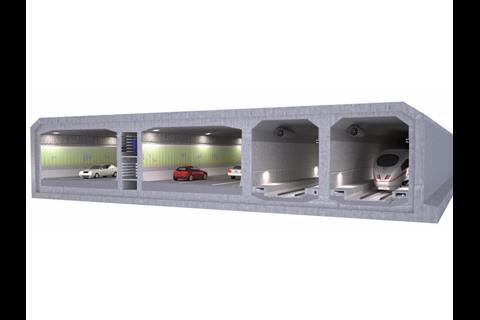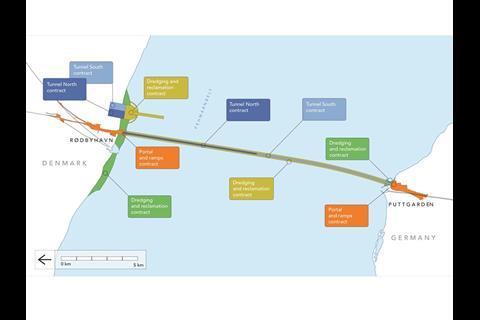EUROPE: The Court of Justice of the European Union has overturned the European Commission’s approval for the financing model for the Fehmarn Belt fixed link project, finding that procedural errors were made. The Commission must now provide a new approval.
Project promoter Femarn A/S told Railway Gazette it had secured access to the necessary liquidity at favourable interest rates to ensure that the project would not stop while the Commission finishes its review of the case. It does not expect the ruling to have any consequences for EU financial support.
The dispute centres on Danish state funding and long-term guarantees to support the €7·4bn construction of the 19 km rail and road tunnel between Denmark and Germany and €1·3bn of associated upgrades on the Danish access routes; hinterland upgrades at the German end of the tunnel are not in dispute.
In July 2015 the Commission announced that it had decided not to undertake a full investigation into the necessity and proportionality of public financing for the tunnel, because this would in any case be permitted as supporting an important project of common European interest. The road and rail connections would be an integral part of the transport network and thus public financing would not distort competition, it felt.
Ferry companies Scandlines and Stena objected to that decision, and on December 13 2018 the court concluded that the Commission had made procedural errors. However the court also confirmed that the tunnel met the definition of an important project of common European interest, and that public investment in the national rail infrastructure would not constitute state aid.
A European Commission spokesperson said the Commission would read the judgement carefully. Investment in public infrastructure would remain a central priority for the Commission, which ‘welcomes the fact that the general court confirmed essential elements of the Commission’s assessment with respect to infrastructure.’
Scandlines CEO Søren Poulsgaard Jensen said he was satisfied with the ruling. ‘The approval of the state aid model has now been cancelled and the Fehmarn project stopped’, he said. ‘Scandlines is not against a Fehmarn connection established with state aid. State aid may be necessary when completing such large-scale projects. However, we do expect correct procedure, which entails transparency and fair competition. The aid must therefore be accurately and realistically defined, and it must be based on consistent assumptions and safeguarded against abuse. It is decisive for us that the tunnel cannot use the state finances as its sees fit to impose taxpayer-financed price pressure when traffic volumes do not live up to the optimistic prognoses and the ferries appear competitive.’
Stena also welcomed the decision, with its Director of Public Affairs & Sustainability Claes Berglund saying the company was ‘used to and expects competition on fair and equal terms’, but ‘in this case state aid has been granted illegally’.





















